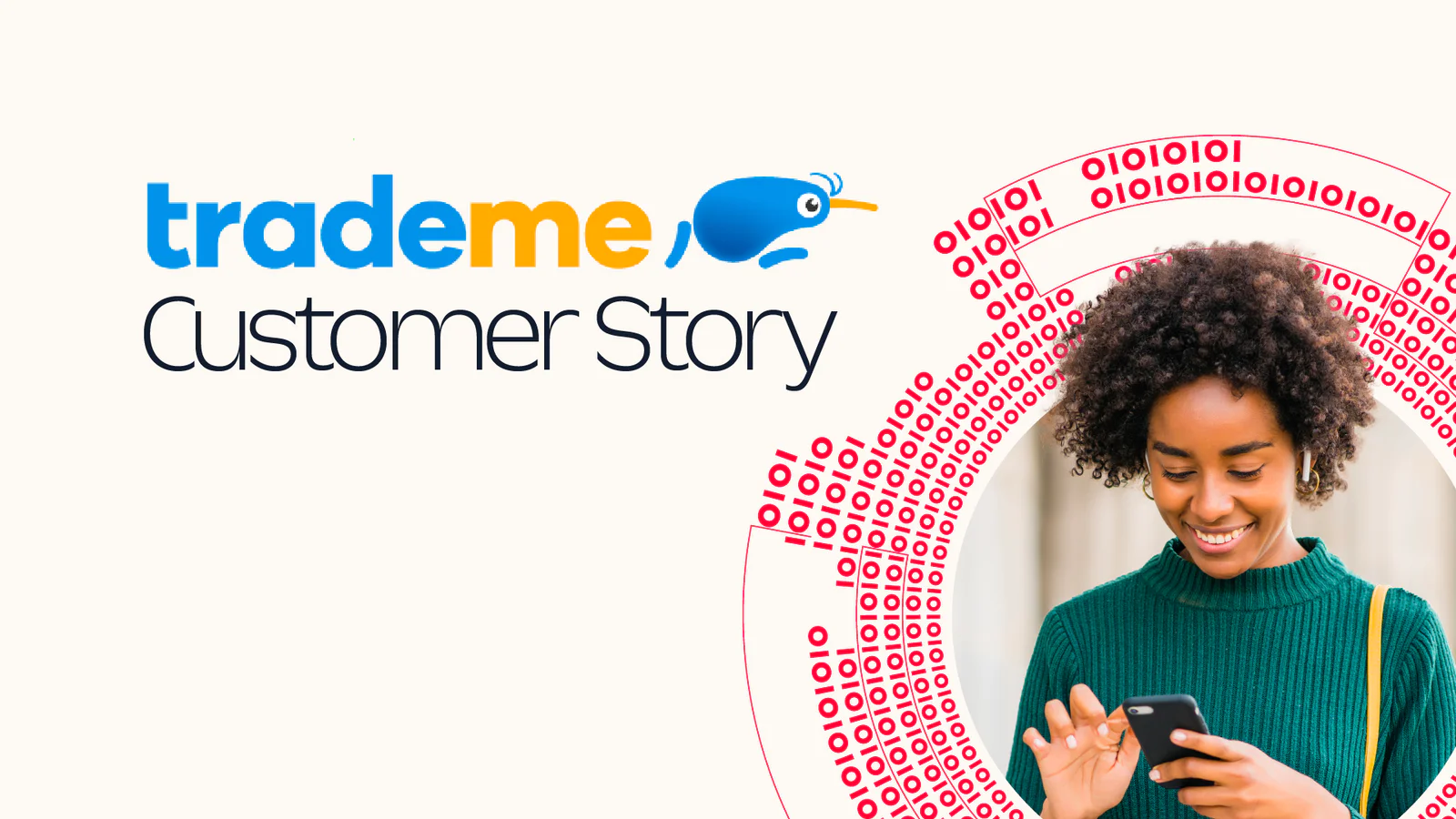The AI advantage: Taking personalized marketing to the next level

Time to read: 4 minutes
The AI advantage: Taking personalized marketing to the next level
Captivating taglines and clever billboards used to dominate marketing strategies, rooted in intuition, creativity, and a general understanding of human nature. Sometimes the lines landed. Sometimes they didn’t. It was hard to tell because there was no way to track.
Over the years, technology has improved targeting, insights, and campaigns for marketers—but, most recently, AI has transformed the playing field. One-size-fits-all marketing tactics are a thing of the past. For greater loyalty and higher revenue, brands are going straight to the customer to customize their data and deliver individualized experiences.
This personalized marketing approach tailors communications and offerings to meet the unique preferences and behaviors of each customer. Amongst other changes, the impending removal of third-party cookies looms large, making customer engagement more challenging and important than ever.
To meet these needs, many brands are using AI in marketing, harnessing its ability to deliver effective campaigns that meet customers where they’re at. In fact, according to Twilio’s 2024 State of Customer Engagement Report, seven out of 10 companies say they’re already using AI to personalize content and marketing. Whether it’s through targeted email campaigns, customized product recommendations, or unique promotions, retailers are using data-driven insights to deliver relevance at scale.


AI-driven personalized marketing inspires customers to spend more
Prior to AI, customer segmentation relied heavily on the manual analysis of data, which was time-consuming, prone to errors, and limited in scale. In lieu of data scientists, AI can now automate much of this work. This not only streamlines efficiencies and saves time, but can empower brands to move beyond basic demographics and reveal deeper insights into customer preferences and behaviors. By analyzing vast troves of data, AI algorithms identify nuanced patterns and affinities, allowing retailers to target specific customer segments with increasingly relevant messaging and offers.
In Twilio’s 2024 State of Customer Engagement Report, 41% of businesses surveyed are experiencing improved market segmentation and targeting since adopting AI. While consumers report spending an average of 36% more on brands that personalize engagement, businesses estimate they actually shell out an average of 54% more. On top of that, 39% of consumers say their spending would increase with improved AI-driven engagement.
While an impressive 64% of companies use AI to build a unified view of every customer, that’s just the start, and the opportunities only compound from there. Once your customer profiles have been created, AI can also help your brand:
- Predict future user behaviors, like a high propensity to purchase or churn
- Define lookalike audiences based on your top customers
- Recommend the best channel to use for each individual customer to increase likelihood of conversions
With AI marketing tools, your business can not only add important context to your customer profiles, but take action to deliver the right message to the right person at the right time on their preferred channel. As a result, you can move prospects and customers further down the funnel with higher efficiency.
Many AI marketing tools are reliant on first-party customer data, or information collected directly from customers with their consent. Although Twilio’s 2023 State of Customer Engagement Report found that only 19% of businesses said they were using mostly or entirely first-party customer data for marketing. In 2024, that number has soared to almost half (48%) of all businesses surveyed.
Only one in four brands “strongly agree” that they possess the necessary tools to understand their customers. But that’s all changing with AI in marketing. Now, brands have a substantial opportunity to analyze vast amounts of customer data, derive actionable insights, and serve memorable, personalized marketing experiences on preferred channels.
Here’s how a few of them are doing just that with Twilio.
Trade Me’s AI-powered strategy boosts campaign performances by 20%
As the largest online auction website in New Zealand, Trade Me is “where Kiwis look first” for just about anything, whether they want to find their first home, launch a new business, or purchase a car. With over 650,000 site visitors a day, there was a hugely impactful opportunity for Trade Me to customize the shopping experience on both sides of the auction.
Using Twilio Segment’s CustomerAI Predictions, Trade Me’s marketing team was able to effectively use flexible, out-of-the-box predictive AI models to anticipate buyer and seller behavior. The resulting ad campaigns were not only more personalized—they were two to three times as effective.
But they didn’t stop there. To boost engagement and conversion metrics, they used those predictions to send targeted and timely email campaigns. Upon measuring email metrics as well as website and app sessions per email sent, they saw an uptick in sessions generated by targeted audiences—even though fewer overall emails were sent.


CraftJack simplifies data collection to power better customer communications
Connecting local home service professionals with the homeowners who need their help, CraftJack takes the stress out of finding skilled, reliable contractors. By connecting customer engagement channels with Twilio Segment’s customer data platform and exchanging its existing third-party email and SMS providers for Twilio Engage, CraftJack can now fuel campaigns with up-to-date customer data, delivering tailored communications that speak to individual needs and concerns.
Taking it one step farther, these personalized communications can then be delivered via each customer’s preferred channels using Twilio’s CPaaS capabilities. That includes voice, WhatsApp, SMS, email, and more. This integrated approach ensures a consistent, personalized, and engaging customer experience across all touchpoints.
Unlock personalized marketing today with Twilio
As retailers navigate the complexities of AI in marketing, Twilio emerges as a trusted ally to unlock the full potential of personalization. With Twilio’s suite of communication tools and AI-driven solutions, retailers can craft compelling, data-driven campaigns that drive conversions, foster loyalty, and fuel sustained growth.
By embracing transformative AI marketing tools, retailers can forge deeper connections with customers, elevate brand experiences, and chart a course towards enduring success in an increasingly competitive marketplace.
Vanessa Thompson is Vice President of Marketing leading a global integrated marketing team for Twilio's Communications products. Her expertise spans all facets of go-to-market including demand generation, growth, lifecycle, analytics, and product strategy. As a leader at Twilio, Vanessa helps execute Twilio's vision of being a globally trusted customer engagement platform (CEP), plus a named leader in communications platform as a service (CPaaS) and customer data platform (CDP) markets.
Related Posts
Related Resources
Twilio Docs
From APIs to SDKs to sample apps
API reference documentation, SDKs, helper libraries, quickstarts, and tutorials for your language and platform.
Resource Center
The latest ebooks, industry reports, and webinars
Learn from customer engagement experts to improve your own communication.
Ahoy
Twilio's developer community hub
Best practices, code samples, and inspiration to build communications and digital engagement experiences.


